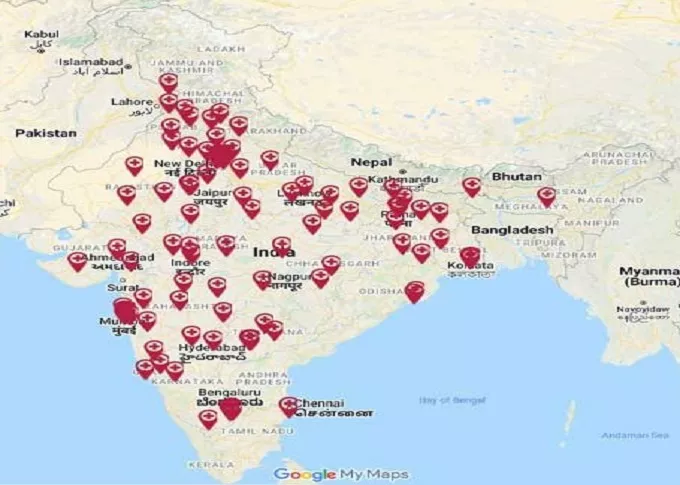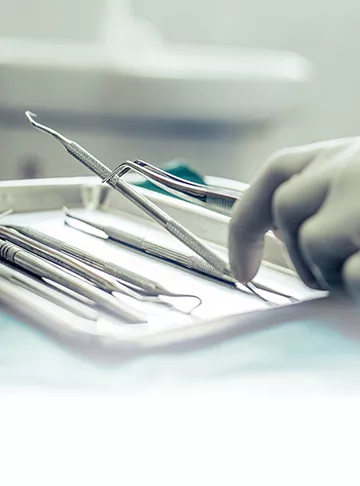What is Laparoscopy?
Laparoscopy is a surgical procedure commonly used to visualise and examine organs inside the abdomen and pelvis without having to make large incisions in the skin. This procedure is also known as keyhole surgery or minimally invasive surgery. It is a small invasive procedure with fewer side effects, lower risks, and a shorter recovery time.
What is Laparoscopy?
Role of Laparoscopy in Infertility
The surgical procedure involves the creation of 3-5 minor incisions on the abdomen. A laparoscope is then inserted through one of these incisions, which consists of a video camera to provide visual access to the area. The surgeon uses the other incisions to pass small surgical instruments to treat the medical issue.
When to get Laparoscopy done?
Generally, the laparoscopy procedure is only recommended when other fertility tests fail to diagnose. For this reason, laparoscopy is often performed on women with unexplained infertility.
It can also be used to biopsy growths and cysts that may be affecting fertility and treat pelvic pain that could be related to endometriosis. Scar tissue can also be removed during laparoscopy, alleviating pelvic and abdominal pain.
If you're struggling with infertility, don't worry! Laparoscopy may be able to provide answers and solutions that other tests can't. Talk to our healthcare provider at Indira IVF to see if laparoscopy surgery is the right option for you or not.
What to expect after Laparoscopy is done for infertility problems?
After laparoscopy for infertility, it's common to experience the following:
- Mild discomfort
- Bloating
- Cramping
You may also feel some shoulder pain due to the use of carbon dioxide during the procedure. Your healthcare provider may prescribe pain medication and advise you to rest and avoid strenuous activities for a few days to allow the body to heal.
Expect vaginal bleeding or discharge for a few days but contact your healthcare provider if you experience heavy bleeding, fever, or signs of infection. Most patients return to their normal activities within a week, but it's important to follow post-operative care instructions for a smooth recovery.
Risks & Complications Involved
As with any medical surgery, there are potential risks associated with undergoing laparoscopy for infertility. However, the chances of experiencing complications are very low, with only 1-2% of patients experiencing issues related to anaesthesia or other complications such as infection or skin irritation at the incision site.
While more serious complications may occur, such as the formation of:
- Adhesions or hematomas
- Allergic reactions
- Nerve damage and blood clots
Although these complications are very rare, sometimes, during the laparoscopy operation, there can be an injury to an abdominal or pelvic organ, such as the bowel or bladder. This risk is higher for women who have previously undergone abdominal surgery, have pelvic adhesions, or are overweight.
If such an injury does occur, a larger incision may be necessary to repair the damage, which could require hospitalisation for recovery. In very rare cases, an organ may not be damaged or detected in the process of surgery but is seen later, and it can turn into an emergency situation and potentially temporary placement of a colostomy if the bowel is affected.
So, it's important to note that while these risks exist, the overwhelming majority of patients who undergo laparoscopy for infertility experience very minimal discomfort & are able to return to normal daily life shortly after the treatment.
As with any medical decision, it's important to discuss the risks & benefits with your healthcare provider to make an informed decision that's right for you.
All in all, Laparoscopy is a surgical procedure that can be used to diagnose and treat infertility-related issues. Although there are some risks involved with any surgical procedure, laparoscopy can have positive outcomes, such as increased chances of pregnancy and relief from pelvic or abdominal pain. It's important to understand that the outcomes of laparoscopy for infertility are unique to each patient and can vary based on their specific needs and medical history.
With proper post-operative care and guidance from the healthcare provider, laparoscopy has helped many women conceive successfully and overcome fertility-related issues. So, if you're considering laparoscopy, take the time to discuss it with your healthcare provider and explore the right benefits it may have for you.
Pregnancy Calculator Tools for Confident and Stress-Free Pregnancy Planning
Get quick understanding of your fertility cycle and accordingly make a schedule to track it
Get a free consultation!















